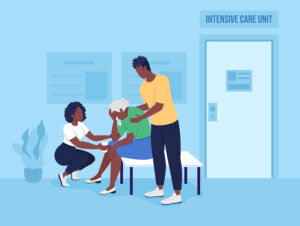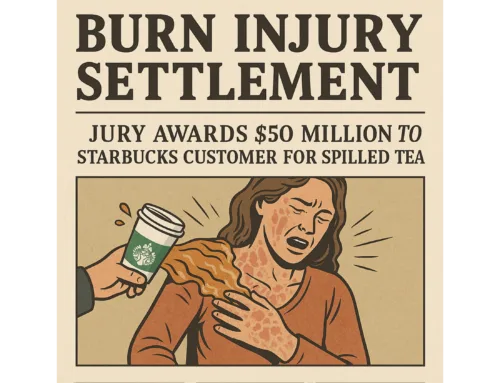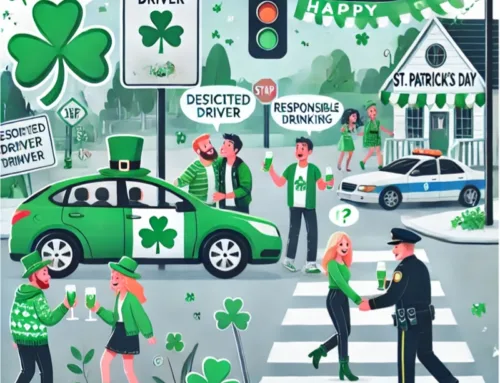Legislation is often not written with clarity for the average layperson in mind. The reason for this is not to be unnecessarily opaque; rather, it is because the meaning and interpretation of a law depends on the specific phrasing of its drafting, down to the punctuation. Often, the shortcomings of a law’s phrasing are only revealed in the courtroom, where they can be used to create technicalities that can be leveraged to challenge or even dismiss seemingly legitimate cases. This was the situation in the New Jersey case of Chandler v. Kaspar, in which the sister of a man who died of injuries he sustained in a traffic accident was unable to seek damages for her brother’s pain and suffering due to a technicality in the matter of her legal standing to pursue the claim.
 In Chandler v. Kaspar, the problem lay with the phrasing of the “survivor’s act,” N.J.S. 2A:15-3, which allows damages for a deceased individual’s pain and suffering to be awarded to the estate of the deceased. On December 21, 2016, an automotive accident took place in which Joseph Chandler was struck by a vehicle driven by Todd Kaspar; Chandler died of his injuries six days after the incident. Because Chandler did not have a will, it fell to the county surrogate to appoint his legal representatives for the handling of various affairs. Due to the lack of assets in Chandler’s estate, his sister Damaris Chandler was informed by the county surrogate that she only needed to be appointed “administrator ad prosequendum.” The appointment of a General Administrator of Joseph Chandler’s estate was delayed by disagreements among Damaris’ siblings, and was only resolved late in December of 2020, after the statute of limitations on the survival action claim. Damaris Chandler had filed suit for wrongful death and survival action within the statute of limitations, on December 18 of that year, but during which time she held only the title of administrator ad prosequendum. After a series of appeals, her survival action claim was dismissed on the grounds that only the General Administrator of an estate has standing to pursue this type of claim, a title which she was not granted until the statute of limitations had already elapsed. At the time of her filing, Damaris Chandler did not have the legal grounds to bring the suit.
In Chandler v. Kaspar, the problem lay with the phrasing of the “survivor’s act,” N.J.S. 2A:15-3, which allows damages for a deceased individual’s pain and suffering to be awarded to the estate of the deceased. On December 21, 2016, an automotive accident took place in which Joseph Chandler was struck by a vehicle driven by Todd Kaspar; Chandler died of his injuries six days after the incident. Because Chandler did not have a will, it fell to the county surrogate to appoint his legal representatives for the handling of various affairs. Due to the lack of assets in Chandler’s estate, his sister Damaris Chandler was informed by the county surrogate that she only needed to be appointed “administrator ad prosequendum.” The appointment of a General Administrator of Joseph Chandler’s estate was delayed by disagreements among Damaris’ siblings, and was only resolved late in December of 2020, after the statute of limitations on the survival action claim. Damaris Chandler had filed suit for wrongful death and survival action within the statute of limitations, on December 18 of that year, but during which time she held only the title of administrator ad prosequendum. After a series of appeals, her survival action claim was dismissed on the grounds that only the General Administrator of an estate has standing to pursue this type of claim, a title which she was not granted until the statute of limitations had already elapsed. At the time of her filing, Damaris Chandler did not have the legal grounds to bring the suit.
To clarify the difference between wrongful death and survival action, wrongful death suits are generally brought by a deceased person’s close relatives and relate to their suffering caused by the loss of the deceased person from their lives. A survival action claim relates to damages suffered by the deceased person between the time of the initial injury and their actual death, including medical expenses, loss of income, pain and suffering – any sort of damages that a living injury victim might be entitled to – and in New Jersey are pursued by certain legal representatives of the estate.
The unfortunate ruling did not only impact the Chandler family; it had the potential to open up many other survivor action cases to dismissal on the same technicality or block them from being filed in the first place. It was with this problem in mind that ASSEMBLY, No. 6133 was drafted. This piece of legislation, signed into law by Governor Murphy on January 18, 2022, amended the existing statute to add administrators ad prosequendum to the categories of individuals (previously including only executors and administrators) who may pursue legal action to recover damages that the deceased person whose estate they represent would have been able to pursue if they were still living. In addition, the revised statute also allows a plaintiff to be designated an administrator for the purposes of this statute (having standing to pursue legal action) by the court, as long as they already qualified for such a designation. Moreover, plaintiffs whose cases had already been thrown out due to lack of standing on this technicality may be able to resume their claims, if the cases haven’t yet been fully dismissed or finally adjudicated.
Taking legal jargon aside, this means that New Jersey families who seek compensation for the pain and suffering endured by their deceased loved ones are no longer vulnerable to having their cases thrown out on a technicality of not being appointed the right kind of representative of the estate in a timely manner. As long as the court can determine that the person bringing the lawsuit is qualified to represent the deceased person’s estate, they can name the plaintiff an administrator for the purpose of the lawsuit, ensuring that they have appropriate legal standing for the claim to move forward. People like Damaris Chandler, who were only appointed administrator ad prosequendum, will still be able to proceed with their cases on behalf of their deceased family members.
Contact MyNJInjuryLawyer Howard P. Lesnik
If you or a loved one suffered an injury in an accident in NJ, you should contact an attorney familiar with handling these claims. An experienced NJ Injury Lawyer will know how to obtain medical records, videos, photographs, experts, locate witnesses and contact the insurance company so you can make a claim for your injuries.
My NJ Injury Lawyer Howard P. Lesnik, Esq. offers complimentary strategy sessions to address any issue or questions you may have for your injury claim in NJ.
Please contact NJ Injury Lawyer Howard Lesnik, Esq., immediately if you were involved in an accident. I personally handle NJ personal injury cases on a regular basis. Please contact me now by email, by phoning 908.264.7701, or by completing the form to the right to schedule your complimentary 30-minute strategy session.







